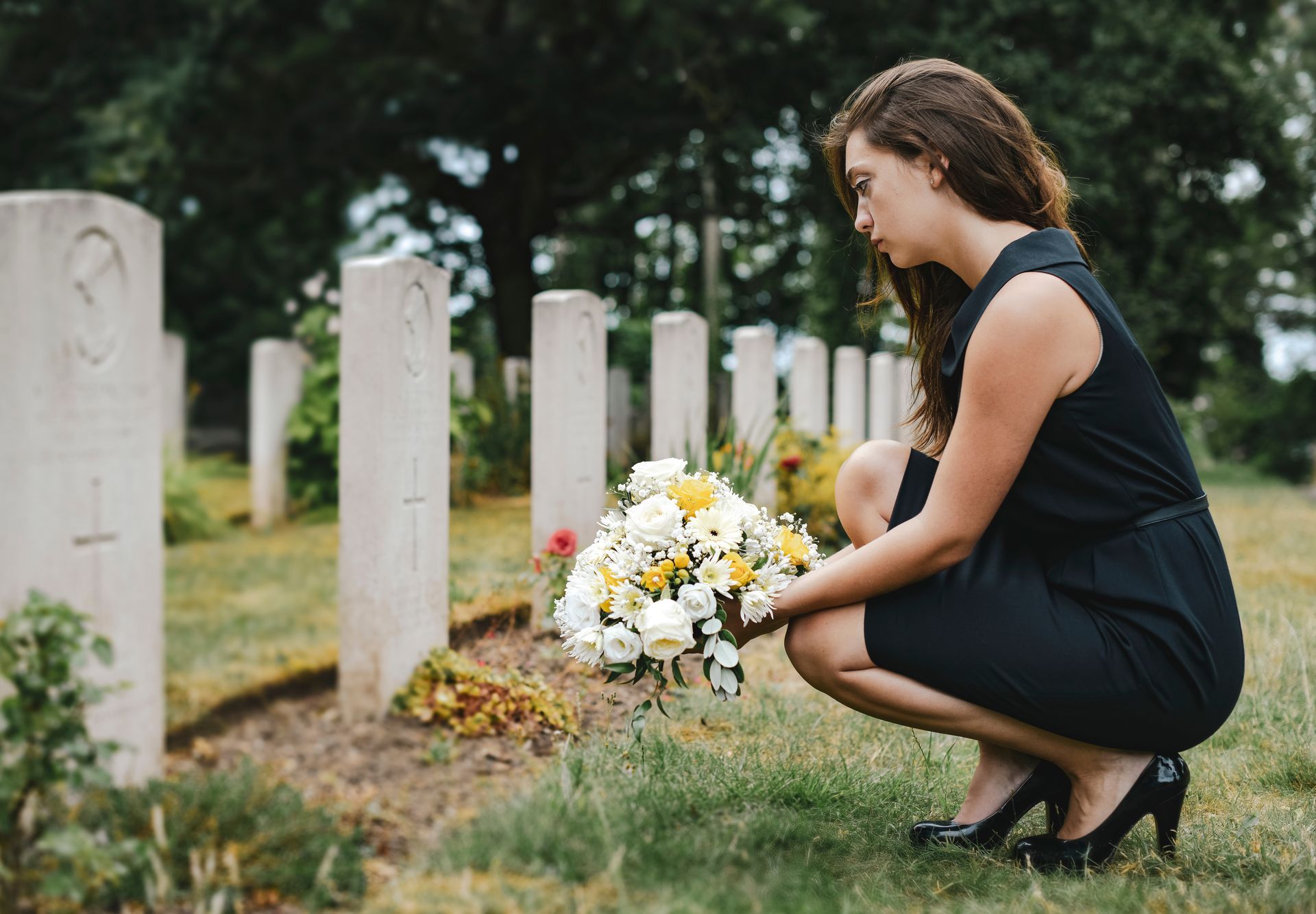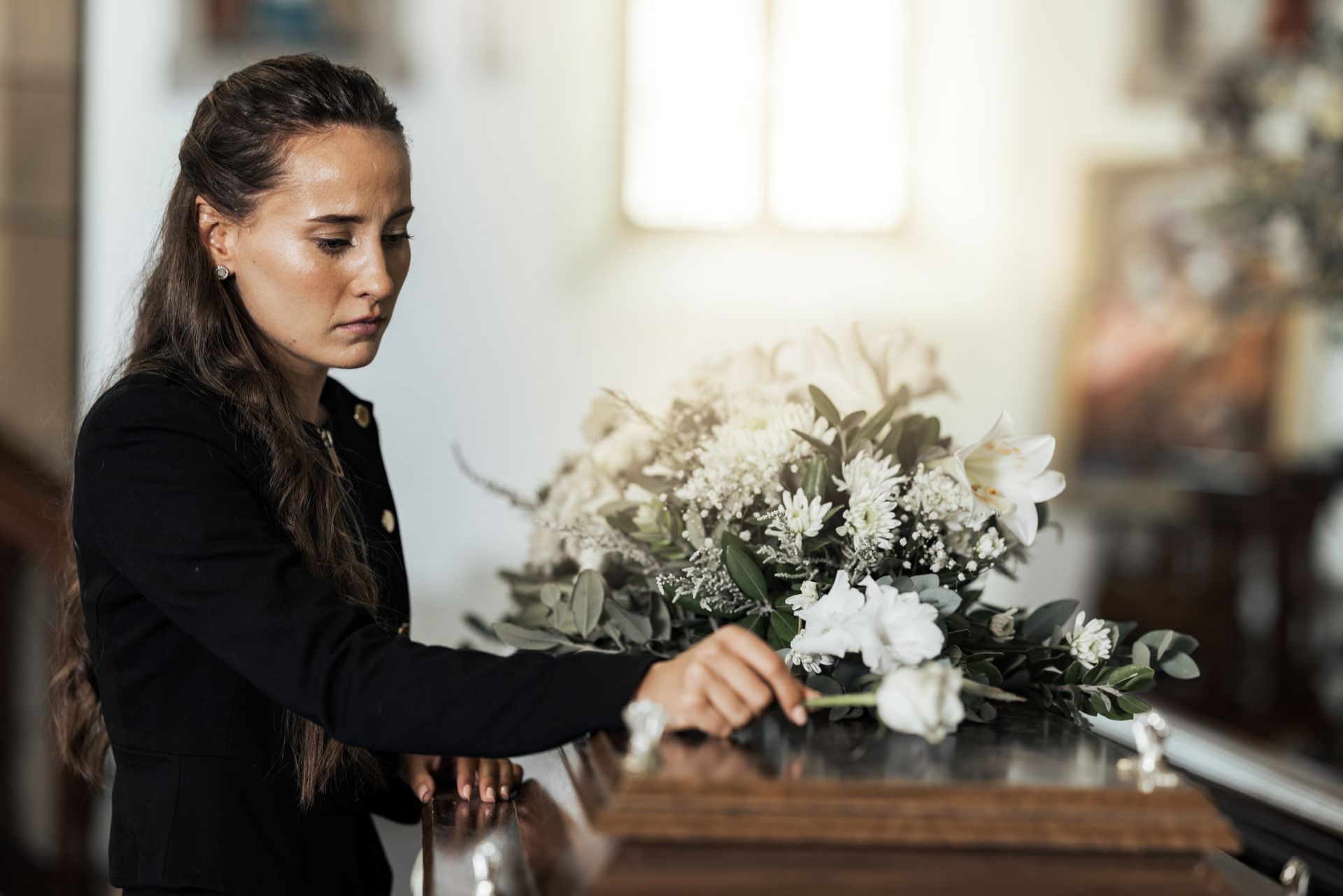Talking to Children about Bereavement
Discussing the loss of a loved one with a child is one of the most difficult conversations you will ever have, particularly if you were close to the departed and are still grieving yourself.
As a family run funeral directors,
Waters and Sons Funeral Directors understands that explaining bereavement to the littlest members of the family is something that nobody wants to do. That is why we have tried to make the conversation less daunting by guiding you through the process.

Be Honest
It’s important to be honest and open when discussing bereavement with a child. Explain the situation using simple and plain language that is appropriate for their age.
You may wish to protect your child by using phrases like ‘they’re no longer with us,’ or ‘they’ve gone to a better place,’ but using fluffy phrases like this can actually confuse them. They may ask if their loved one will come back, or think they’ve done something wrong that caused their loved one to leave.
Instead, try to use the words ‘death’ and ‘died’ in your explanations because they will make the situation clearer, even if they do seem harsh.
Show your Emotions
It can seem natural to shield your child from your own grief by holding in your emotions, but it is actually far more beneficial to let your child see you grieve.
This will show them that it’s healthy to let out their emotions, and that it’s okay to feel sad when you lose someone. You may wish to explain to them what it is you’re feeling, and why you’re feeling that way. This can open an honest conversation, and encourage them to discuss their own reaction to the loss.
Give Plenty of Reassurance
Ensure that the child feels supported by explaining that they are not alone in their grief, and encourage them to ask questions.
Physical reassurance like a cuddle or a squeeze of the hand can show them that you’re there for them while they piece together their understanding of the loss.
Allow Them to Have an Emotional Reaction
When explaining the death of a loved one to a child, you should be prepared for an irrational reaction. It is very common for children to respond to news of death with anger, silence and even laughter.
Allow them to process the situation in any way they need to, and reassure them that it’s okay to respond that way.
Avoid using phrases like ‘they wouldn’t want you to be sad’, as this can encourage the child to hold in perfectly normal and rational feelings.
Set Clear Expectations
When a child loses a loved one, particularly if it’s a parent, there are likely to be major changes in their routine.
Let them know that these changes are coming and what they are. For example, explain that they might be living somewhere different, let them know by when, and how this will impact their life. Make sure to get confirmation from them, and ask how they feel about these changes, even if you are met with hostility.
Remember, this will be an incredibly confusing time for them, so they will likely respond to change with resistance, and take a while to settle into their new routine.

Check Their Understanding
You should always make sure to check in with the children at every stage of the conversation. Ask how they are feeling, and how they understand the conversation.
This gives you a chance to make sure they’ve absorbed what you’ve told them, and repeating things back to you may help them gain clarity on the loss.
Keep in mind that it’s okay for you to not always know the answers to their questions. This is likely an incredibly distressing time for you too, so take your time and don’t put pressure on yourself to respond to everything your child asks.
Seek Support
You don’t have to go through this alone. If you are unsure where to start, you can speak to a grief counsellor or a child bereavement service who can guide you through the process. This can be incredibly beneficial for you as they may offer you additional support through your grieving process.
Check in Regularly
Make sure that the child is managing their grief by asking how they feel on a regular basis, and reassuring them that it’s still okay to ask questions, even several weeks after the death.
Encourage them to continue talking about the person who died and discuss fond memories.
You should also take extra care to ensure they aren’t withdrawing from social activities or school and that they continue with their lives in the healthiest way possible.
Allow Them to Say Goodbye
It can be tempting to leave children out of the funeral because you may think it will be too confusing for them, but allowing them to say goodbye along with the family may provide them with a source of closure, a clearer understanding of the loss, and show them that their relative was loved.
You might wish to give them a role in the funeral, like reading a small poem, or placing flowers on the coffin. This will help them feel involved.
They may also want to help pick out the details for the funeral such as choosing the
coffin, the
flowers, or any other
little touches that can give them a sense of purpose, but check that this is something they definitely want to do.
Make sure you prepare them for the funeral service; tell them exactly what will happen and what they’ll see, including the burial or cremation, so that nothing comes as a shock.
Waters and Sons understands how difficult it is to manage a grieving child whilst coming to terms with your own loss which is why we offer a 24 hour personal support service.
Please feel free to
contact us at any time.


Home | Blog









